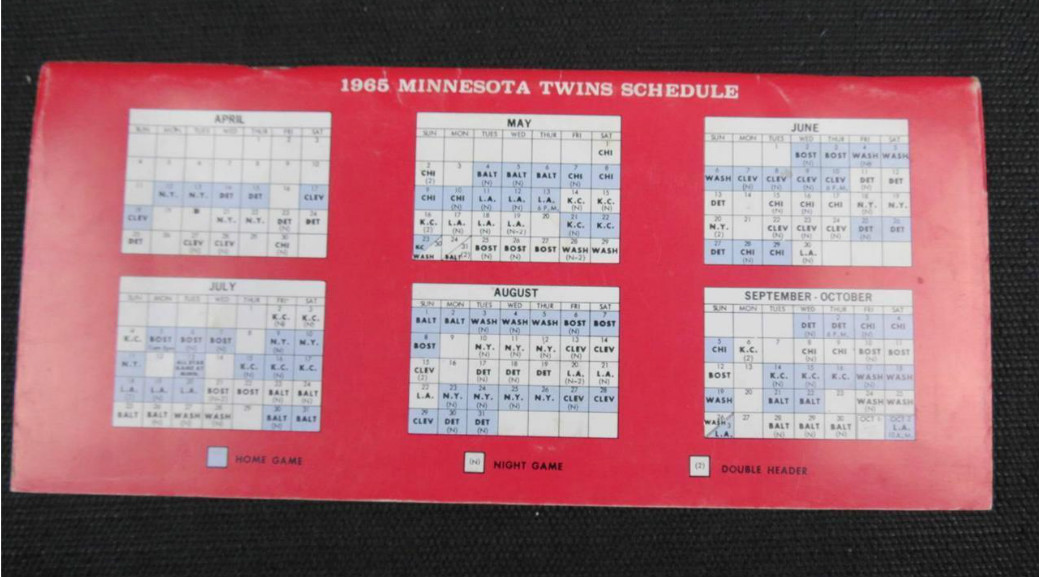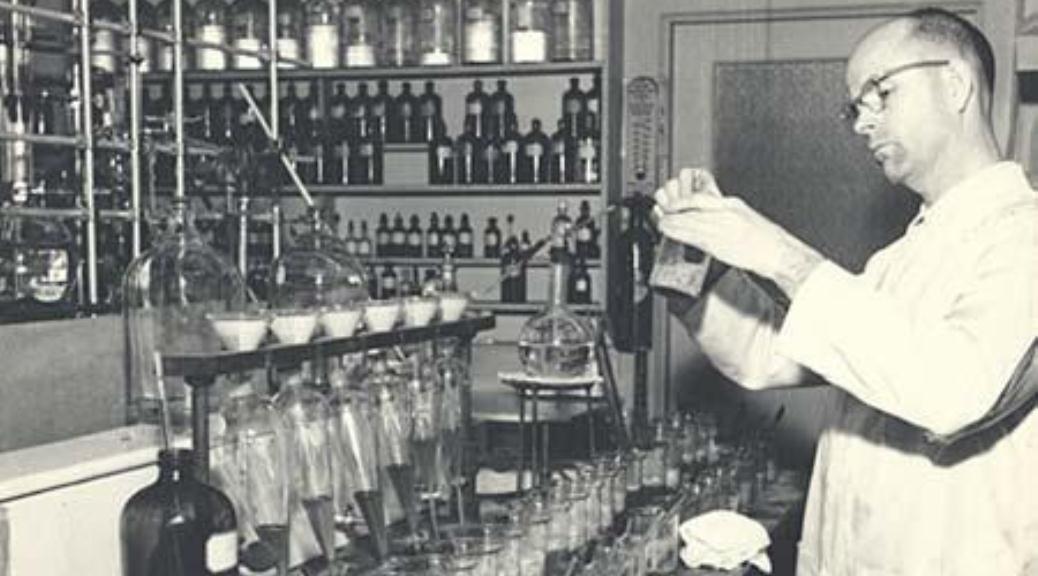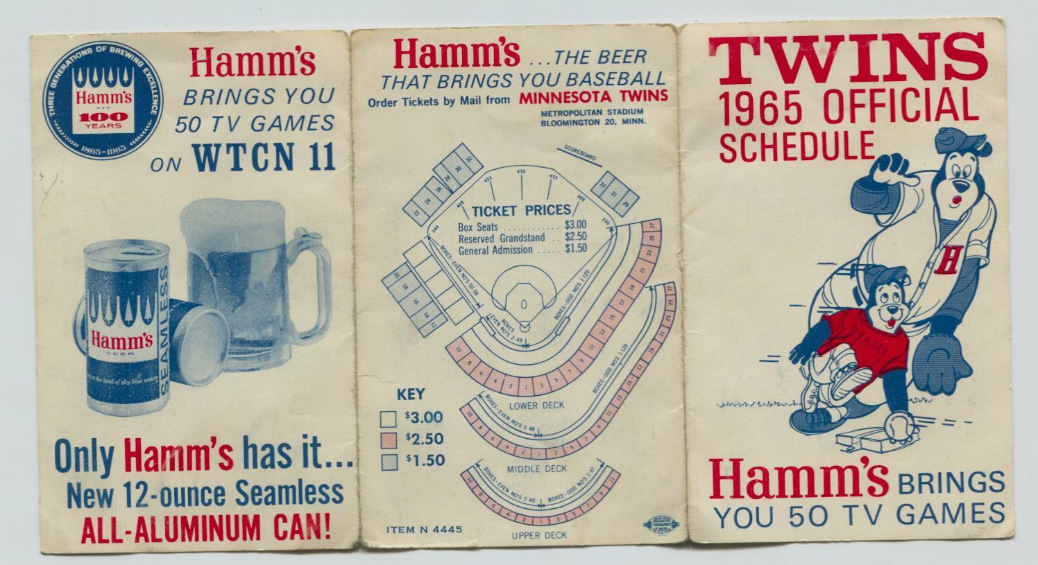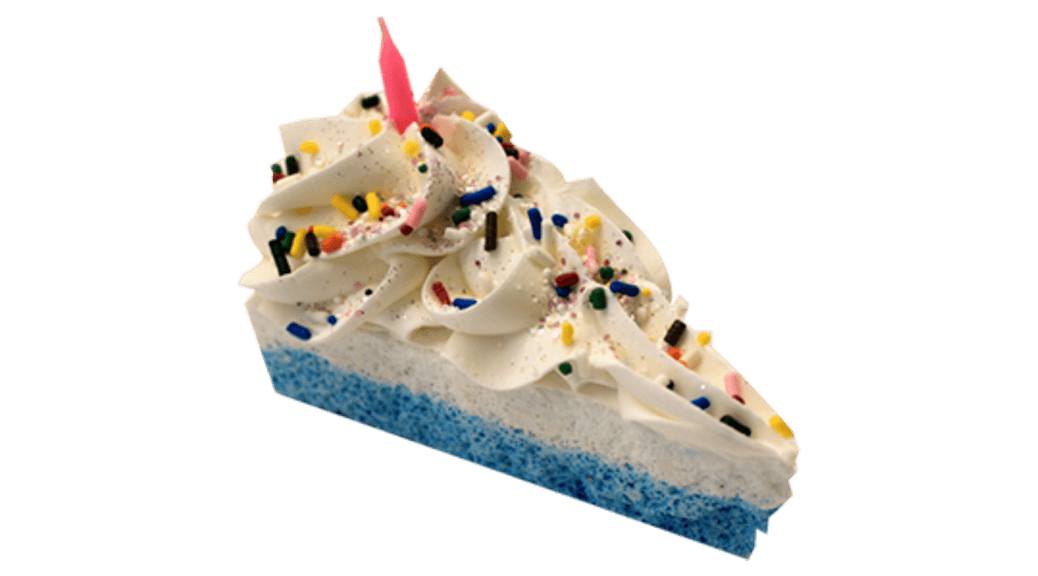I'll take a couple of days off from the new store. Warmer weather does not help business.
Monthly Archives: March 2016
Ali Ibrahim “Farka” Touré and Toumani Diabaté
Africurious? Become an Africionado. (114 WGOM bucks for whomever can name the instrument on the left. +2 if you have to look it up).
1965 Rewind: Game One Hundred Fifty-four
BALTIMORE 5, MINNESOTA 2 IN MINNESOTA
Date: Wednesday, September 22.
Batting stars: Harmon Killebrew was 2-for-4 with a double and a run. Joe Nossek was 2-for-4 with a run. Tony Oliva was 1-for-2 with a walk and a hit-by-pitch, driving in one.
Pitching stars: Dwight Siebler struck out four in three shutout innings, giving up no hits and two walks. Pete Cimino made his major league debut with a perfect inning.
Opposition stars: Dave McNally pitched a complete game, allowing two runs (one earned) on six hits and one walk with six strikeouts. Jerry Adair was 2-for-4 with a home run (his sixth) and a double, driving in four. Paul Blair was 2-for-4 with a double and a walk, scoring once.
The game: Adair hit a two-run homer in the second to put the Orioles up 2-0. RBI singles by Bob Allison in the second and Oliva in the third tied it 2-2. In the fifth, however, Brooks Robinson had a run-scoring single and Adair delivered a two-out two-run double to give the Orioles a 5-2 advantage. The Twins put two on with two out in the fifth, but did not threaten after that and at one point had ten men in a row retired.
Of note: Zoilo Versalles was 0-for-4. Earl Battey was 0-for-2. Jim Kaat pitched 4.1 innings, giving up four runs on eight hits and one walk with three strikeouts.
Record: The Twins fell to 96-58. The win brought Baltimore to within eight games and kept their slim hopes alive. Chicago beat Detroit 2-1 and also moved to within eight games, keeping their slim hopes of a tie alive.
Notes: Oliva raised his average to .321. Battey fell back below .300 at .298...Nossek played center field in place of Jimmie Hall... Cimino made his major league debut in this game at age twenty-two. It would be his only appearance for the Twins in 1965. He spent most of 1966 with the Twins, appearing in thirty-five games and going 2-5, 2.92, 1.28 WHIP in 64.2 innings. After the 1966 season he was traded to California along with Hall and Don Mincher for Dean Chance. He pitched very well for the Angels in 1967. One assumes he was injured in 1968, as he made only thirteen appearances that year and never pitched again after that. He once scored 114 points in a high school basketball game, including all 69 of his team's second-half points. His team won, 134-86.
March 8, 2016: Volume
I was under the impression that I had previously been in a small store, but Eagan's is a walk-in closet.
Happy Birthday–March 8
Harry Lord (1882)
Pat Flaherty (1897)
Bobby Goff (1902)
Pete Fox (1909)
Ray Mueller (1912)
Al Gionfriddo (1922)
Carl Furillo (1922)
Jim Bouton (1939)
Jacques Doucet (1940)
Dick Allen (1942)
Jim Rice (1953)
John Butcher (1957)
Mark Salas (1961)
Lance Barksdale (1967)
Mike Moriarty (1974)
Juan Encarnacion (1976)
Hines Ward (1976)
If you have a few minutes to spare, I would very much recommend reading Harry Lord’s biography at baseball-reference.com.
Pat Flaherty pitched in the minors from 1917-1921. He also played in the NFL from 1923-1928, was a major in the Air Force, and appeared in about 250 movies from 1934 to the 1950s.
Bobby Goff played in the minor leagues for nineteen years, 1923-1941. He also was a minor league manager and general manager and a major league scout, remaining in baseball until 1972.
Jacques Doucet was the French-language play-by-play announcer for the Montreal Expos from 1972 until the team left.
Lance Barksdale has been a major league umpire since 2000.
NFL star Hines Ward was drafted by the Florida Marlins in 1994, but did not sign.
Right-hander John Daniel Butcher pitched for the Twins from 1984 through mid-1986. A native of Glendale, California, he attended Yavapai Community College and was drafted by Texas in the first round of the June secondary draft in 1977. Butcher pitched well in the low minors, but then was a bit up and down. He had a fine year in 1980 at AAA Charleston, resulting in his first September call-up. He struggled the next year at AAA Wichita, but still got another September call-up. Butcher got off to a strong start in AAA Denver in 1982, and was brought up for good in late May. He made a few appearances out of the bullpen, then entered the starting rotation in mid-July. Butcher was used mostly in relief in 1983 for the Rangers and pitched very well. After the season, however, he was traded to Minnesota with Mike Smithson for Sam Sorce and Gary Ward. The Twins immediately moved Butcher into the rotation and he had his best year, going 13-11, 3.44 in 1984. In 1985 his ERA went up by over a run and a half, and after a slow start in 1986 he was traded to Cleveland for Neal Heaton. He finished the season for the Indians, but did not pitch well there, either. He apparently injured his arm that year and his career was over. As a Twin, John Butcher was 24-28, 4.48 in just over 500 innings. He made 84 appearances, 77 of them starts. John Butcher had been an information technology and services professional for Cisco Solutions in the Twin Cities area, but his biography on LinkedIn lists him as "looking for work", leading one to believe that he either quit or got downsized. If anyone is looking for an information technology and services professional, you are encouraged to make contact with him.
Palindromic catcher Mark Bruce Salas played for the Twins from 1985 until June of 1987. He was born in Montebello, California, went to high school in La Puente, California, and was drafted by St. Louis in the 18th round in 1979. He had been nothing special in the minors when all at once he hit .304 with 20 home runs in AA Arkansas in 1983. He fell back to a more typical .244 with 12 homers the next year, despite which he made his major league debut for about a month from mid-June to mid-July. Salas was not protected that offseason, and was chosen by Minnesota in the Rule 5 draft. He shared catching duties with Tim Laudner in 1985 and 1986; Salas, as a left-handed batter, got the majority of the at-bats, but not by as much as one would expect. He hit .300 in 360 at-bats in 1985, but only .233 in 258 at-bats in 1986. He was hitting well in limited playing time in early June of 1987 when he was traded to the Yankees for Joe Niekro. Things did not go well for Salas in New York, and after the season he was traded again, this time to the White Sox. He spent 1988 in Chicago as a part-time catcher, was released at the end of spring training in 1989, and hooked on with Cleveland. He was with AAA Colorado Springs much of the year and hit well there, but did little in thirty games with the Indians. Released again at the end of the season, Salas moved on to Detroit for 1990 and was a reserve catcher there for two years before ending his career. Salas' best season was clearly with the Twins in 1985; for his career as a Twin, he hit .279/.320/.440 in 663 at-bats. Since his playing career ended, Mark Salas has been employed mostly by the White Sox, for whom he was working as bullpen catcher at last report.
Infielder Michael Thomas Moriarty did not play for the Twins, but was drafted by them. Born in Camden, New Jersey, he attended high school in Pennsauken, New Jersey, and then went to Seton Hall. He was drafted by Minnesota in the seventh round in 1985. He was in the Twins' minor league system for six years, the last three and a half in AAA. He hit between .220 and .260 in all six of those years, never hitting more than 13 home runs. Moriarty became a minor league free agent after the 2001 season and played for several organizations before ending his career. He signed with Baltimore for 2002 and surprisingly made the club out of spring training, but hit only .188 in 16 at-bats, his only stint in the big leagues. Returned to the minors in early May, he hit .277 in Rochester, his best season in the minors. Moriarty signed with Toronto for 2003, was released in June, signed with Houston in July, became a free agent after the season, signed with Colorado for 2004, was released in April, signed with Pittsburgh, was released after the season, signed with Boston for 2005, was released in April, signed with the Cubs, was moved on to Baltimore in May, and was released after the season, ending his career. He played in AAA almost all of that time, hitting between .210 and .240. Moriarty's primary position was shortstop, although he also saw time and second base and third base. After his playing career was over, Mike Moriarty did some coaching in the Pittsburgh Pirates' minor league system. At last report, he was the northeast scouting supervisor for the Seattle Mariners. He was also an instructor for Baseball Warehouse Instructional Academy in Highland Park, New Jersey.
March 7, 2016: Spring
Trimmed some bushes and pruned the raspberries yesterday. Still more bushes to trim hack back but I might remove them instead this year. They're too large for where they are but with all the rocks on the soil I've been avoiding outright removal.
1965 Rewind: Game One Hundred Fifty-three
BALTIMORE 6, MINNESOTA 4 IN MINNESOTA (10 INNINGS)
Date: Tuesday, September 21.
Batting stars: Tony Oliva was 3-for-4 with a double and a walk, scoring once. Earl Battey was 2-for-4 with a walk and two runs. Zoilo Versalles was 2-for-6 with a double and an RBI.
Pitching star: Johnny Klippstein struck out two in 1.1 scoreless innings, giving up one hit.
Opposition stars: Boog Powell was 2-for-4 with a double and two walks, driving in three. Paul Blair was 1-for-4 with a two-run homer, his fifth. Jerry Adair was 3-for-5 with two stolen bases (his fifth and sixth) and a run.
The game: Powell singled in a run in the first and Blair hit a two-run homer in the fourth to give the Orioles a 3-0 lead. A single, an error, and two walks put the Twins on the board in the bottom of the fourth, but Baltimore got the run back in the fifth on Powell's RBI double, leaving the score 4-1. Don Mincher drove in a run with a double in the seventh and the Twins scored twice in the eighth to tie it up, with Versalles driving in the tying run with a double. Each team had a chance to score in the ninth, but the game went to an extra inning. In the tenth, Luis Aparicio drove in the go-ahead run with a single and an insurance run was walked home. The Twins went down in order in the bottom of the tenth.
Of note: Jimmie Hall was 0-for-5. Don Mincher was 1-for-4 with a double and an RBI. Harmon Killebrew was 0-for-4 with a walk. Camilo Pascual pitched four innings, giving up three runs (two earned) on four hits and no walks with two strikeouts.
Record: The loss made the Twins 96-57. Chicago also lost, keeping them nine games back and meaning the best they could do is tie the Twins. Baltimore, however, improved to nine games back as well. As the Orioles had played fewer games, they still had a slim chance to catch the Twins.
Notes: Oliva raised his batting average to .320. Battey was hitting an even .300...Killebrew returned to the lineup for the first time since August 2. He played third base, with Mincher remaining at first...Bob Allison was again out of the lineup, with Ted Uhlaender in left. Allison was used as a pinch-hitter...The Twins used twenty-two players. They used six pitchers, four pinch-hitters, and two pinch-runners.
Happy Birthday–March 7
Ed Willett (1884)
Dave Danforth (1890)
Andy Phillip (1922)
Bobo Holloman (1923)
Red Wilson (1929)
Galen Cisco (1936)
Jimmie Hall (1938)
J. R. Richard (1950)
Jeff Burroughs (1951)
Albert Hall (1958)
Joe Carter (1960)
Jose Cano (1962)
German Gonzalez (1962)
Mauro Gozzo (1966)
Jeff Kent (1968)
Tyler Ladendorf (1988)
A member of the basketball Hall of Fame, Andy Phillip played minor league baseball in 1947, 1949, and 1952, batting .281 in 123 games.
Bobo Holloman is sometimes referred to as the worst pitcher ever to throw a major league no-hitter.
The father of Robinson Cano, Jose Cano appeared in six games for Houston in 1989.
We would also like to wish a happy birthday to strategery's son.
Duna Ma Yelema – Boubacar Traoré & Ali Farka Touré
You've got Mail Mali.
March 6, 2016: Close Enough
I saw my dad the day before his birthday this year, which is as close as I've gotten in years.
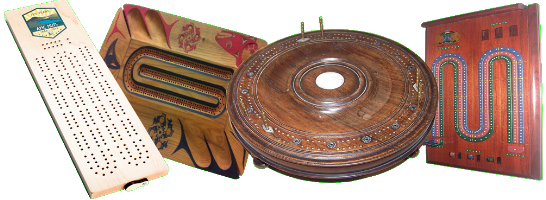


 (2 votes, average: 9.00 out of 10)
(2 votes, average: 9.00 out of 10)